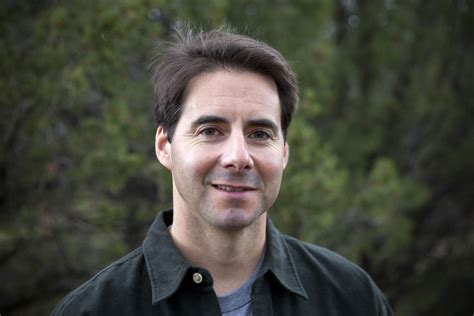A Quote by William P. Young
Jesus picked up the conversation. "As the crowning glory of creation, you were made in Our image, unencumbered by structure and free to simply 'be' in relationship with Me and one another. If you had trully learned to regard one another's concerns as significant as your own, there would be no need for hierarchy.
Related Quotes
Made for spirituality, we wallow in introspection. Made for joy, we settle for pleasure. Made for justice, we clamor for vengeance. Made for relationship, we insist on our own way. Made for beauty, we are satisfied with sentiment. But new creation has already begun. The sun has begun to rise. Christians are called to leave behind, in the tomb of Jesus Christ, all that belongs to the brokenness and incompleteness of the present world ... That, quite simply, is what it means to be Christian: to follow Jesus Christ into the new world, God's new world, which he has thrown open before us.
I will not be alone if I am my true self. Only by trading my true self for the companionship of another have I ever made myself alone. Because when I gave up my real self, I wound up resenting my "significant other" for "making me" do that-and it was this resentment that ate away at our relationship.
If I wanted to be free, truly free, I had to choose. There were many points on the compass rose; I had to locate the few that were meant for me. Not any destination picked at random; I had to head for those that summoned me with a passion, for they were the ones that gave meaning to my life. I had to ignore the warnings of those who would tell me why I couldn't do what I wanted to do.
Our knowledge of Jesus is in need above all of a living experience: Another person's testimony is certainly important, as in general the whole of our Christian life begins with the proclamation that comes to us from one or several witnesses. But we ourselves must be personally involved in an intimate and profound relationship with Jesus.
Why pray? Evidently, God likes to be asked. God certainly does not need our wisdom or our knowledge, nor even the information contained in our prayers ("your Father knows what you need before you ask him"). But by inviting us into the partnership of creation, God also invites us into relationship. God is love, said the apostle John. God does not merely have love or feel love. God is love and cannot not love. As such, God yearns for relationship with the creatures made in his image.
Imagine for a moment the result if everyone were to love one another as Jesus loves his disciples. We would have no bickering, quarreling, strife, or contention in our homes. We would not offend or insult one another either verbally or in any other way. We would not have unnecessary litigation over small matters.
The American appetite for loneliness impressed me, and there was something about this solitude that freed conversation. One night at a bar, I met a man, and within five minutes he explained that he had just been released from prison. Another drinker told me that his wife had passed away, and he had recently suffered a heart attack, and now he hoped that he would die within the year. I learned that there's no reliable small talk in America; at any moment a conversation can become personal.
Once you have hierarchy you need rules to protect and administer it, and then you need law and the enforcement of the rules, and you end up with some kind of chain of command or system of order that destroys relationship rather than promotes it. Hierarchy imposes laws and rules and you end up missing the wonder of relationship that we intended for you.
The Epicureans, according to whom animals had no creation, doe suppose that by mutation of one into another, they were first made; for they are the substantial part of the world; like as Anaxagoras and Euripides affirme in these tearmes: nothing dieth, but in changing as they doe one for another they show sundry formes.
If we reason, we would be understood; if we imagine, we would that the airy children of our brain were born anew within another's; if we feel, we would that another's nerves should vibrate to our own, that the beams of their eyes should kindle at once and mix and melt into our own, that lips of motionless ice should not reply to lips quivering and burning with the heart's best blood. This is Love.
For the Jesus Revolutionaries, the answer was clear: Jesus would not be out waging "preventative" wars. Jesus would not be withholding medicine from people who could not afford it. Jesus would not cast stones at people of races, sexual orientatons, or genders other than His own. Jesus would not condone the failing, viperous, scandalplagued hierarchy of some churches. Jesus would welcome everyone to his his table. He would love them, and he would find peace.

































